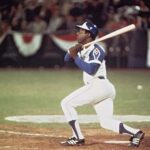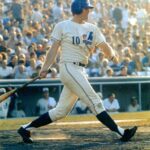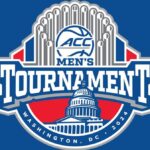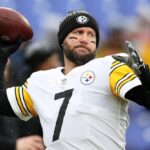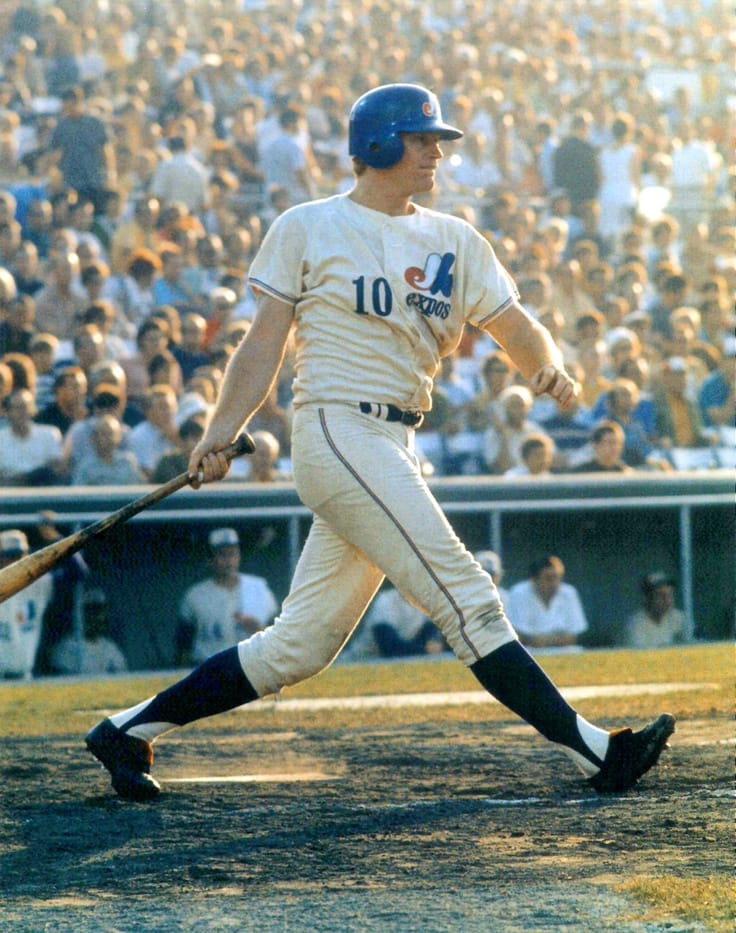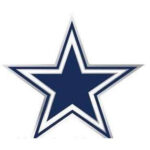Remembering the Great Frank Robinson
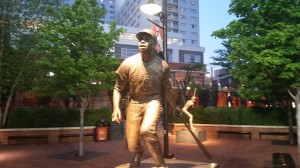 The baseball universe is missing a major star today with the passing of all-time great Frank Robinson. Anytime you use the words “only” and “first” in someone’s biography, you know that they were probably quite special.
The baseball universe is missing a major star today with the passing of all-time great Frank Robinson. Anytime you use the words “only” and “first” in someone’s biography, you know that they were probably quite special.
That is certainly the case for Robinson during his playing days as well as throughout his career as a manager and administrator.
There are many superlatives to share about what Robinson accomplished on the field, but one thing that makes him stand out is that he remains the only player in Major League Baseball history to earn the Most Valuable Player Award in both the American and the National Leagues.
Starting his career with the Cincinnati Reds in 1956, Robinson blasted 38 home runs and was named the National League Rookie of the Year. He quickly joined Hank Aaron, Willie Mays and Roberto Clemente as one of the elite outfielders in the National League.
In his first seven major league seasons, Robinson eclipsed 30 home runs six times and the other season hit 29. He was a regular .300 or better hitter and annually ranked near the top of the league in runs batted in.
He reached new heights during the 1961 campaign when he was named the National League MVP while leading the Reds to the National League Pennant and a spot in the World Series. He hit 37 home runs with 124 RBI and a .323 batting average.
Interestingly, the next season he posted even better numbers in all three major categories (39 HR, 136 RBI and .342 batting average) while also leading the league with 136 runs scored and 51 doubles, but finished fourth in the MVP voting.
His production dipped slightly in 1963 and 1964, but Robinson rebounded with another strong campaign in 1965 with 33 home runs, 113 RBI and a .296 batting average.
However, with Robinson turning 30 and the Reds building their franchise around some young stars including Pete Rose and Tony Perez, they decided to trade Robinson while he was at peak value.
In what many have called the worst trade in baseball history, the Reds traded Robinson to the Baltimore Orioles for veteran pitcher Milt Pappas and a pair of younger players.
The Orioles had come close to winning the American League pennant in each of the three previous seasons, but had been unable to get over the hump. Robinson proved to be the missing ingredient as the Orioles won 97 games and their first AL Pennant.
Robinson showed that he was getting better with age as he won the American League triple crown as he led the league with 49 home runs, 122 RBI and a .316 batting average while also scoring a league-high 122 runs.
In the World Series, Robinson hit a two-run home run off future Hall of Famer Don Drysdale in the first inning of the opening game and the Orioles never looked back. Robinson ended up with a .286 series average and two home runs as Baltimore swept the defending champion Dodgers in four games.
Over the next two years, Robinson and the entire Baltimore squad struggled to duplicate their success of 1966. Robinson hit 30 home runs and was an All-Star in 1967, but struggled in 1968 with a career-low 15 home runs and 52 RBI.
The 1969 season marked a return to dominance for both Robinson and the Orioles. He finished third in the MVP voting while hitting 32 home runs with 100 RBI and a .308 batting average. Baltimore won an amazing 109 games and then swept the Minnesota Twins in the AL Playoffs. Unfortunately, the hot bats of the Orioles were thwarted by the pitching of the New York Mets as the Amazing Mets won the series in five games.
Baltimore recovered to win another pennant and their second World Series in five years in 1970. Robinson did not have quite the offensive production (25 HR, 78 RBI, .306 average), but at 34 years old was still a key performer.
The Orioles made their third straight World Series appearance in 1971, but for the second time ended up on the wrong end of the results as they lost the seventh game of the series to the Pittsburgh Pirates. The 35-year-old Robinson hit 28 home runs with 99 RBI and a .281 batting average.
There was no question that Robinson had been a critical component of the Orioles amazing run of four AL pennants and two World Series titles between 1966 and 1971, but after the season, the Orioles decided that Robinson’s best days were behind him. They traded him to the Los Angeles Dodgers for a number of young players.
That decision proved to be a decisive one for both the Orioles and Robinson. Both the Orioles and their former star struggled in 1972. The following season Robinson had a productive campaign for the California Angels with 30 home runs and 97 RBIs. The Orioles also rebounded to reach the playoffs, but lost to the Oakland A’s in the AL Championship Series. Baltimore made the playoffs again in 1974, but would not return to postseason play again until 1979.
Robinson made his 12th All-Star appearance in 1974, but late in the season was traded to the Cleveland Indians.
It was after that season that Robinson became the first African American manager in Major League history. He continued as a player-coach in 1975 and 1976, but played in only 85 games in those two seasons before retiring.
At the time of his retirement, Robinson ranked fourth in MLB history with 586 home runs while also driving in 1,812 runs and scoring 1,829 during his career. He was named to the Baseball Hall of Fame in his first year of eligibility in 1982.
An astute “student of the game”, Robinson inherited an average Cleveland team and in two+ seasons managing the squad maintained that level of average. They went 79-80 in 1975 and 81-78 the next season. The team was 26-31 when Robinson was fired after 57 games of the 1977 campaign.
He was hired as manager of the San Francisco Giants in 1981 and posted a winning record in each of his first two seasons. In 1982, the Giants finished third in the NL West with an 87-75 record, but after having been eliminated the previous day, kept the rival Los Angeles Dodgers from finishing in a tie for the division title on the last day of the season.
That would prove to be the high-point for Robinson’s tenure as the Giants finished under .500 the next season and then Robinson was fired during the season for the second time in 1984.
There had been discussions for years about Robinson becoming the manager of the Orioles, but it was not until during a disastrous 1988 campaign in which they opened the season with 21 straight losses that Robinson was given the job. The team went 54-101 under Robinson in 1988, but the next season he orchestrated one of the greatest turnarounds in baseball history.
Baltimore went 87-75 and finished second in the AL East. Robinson was honored as the AL Manager of the Year. Unfortunately, that campaign proved to be an aberration as the Orioles regressed in 1990 and Robinson was fired during the year for the third time in 1991. He stayed with the Orioles front office for the next four years as the Orioles built a roster that returned to the playoffs in 1996 and 1997.
He then worked for Major League Baseball as Vice President of On-Field Operations.
In 2002, at the age of 66, he was named the manager of the Montreal Expos during a period in which MLB owned the franchise. Despite an eroding and evolving roster, the Expos posted a winning record during both the 2002 and 2003 campaigns.
With it apparent that the team was not going to stay in Montreal much longer, the 2004 season was a disaster as the team won only 67 games. The team moved to Washington for the 2005 campaign and went 81-81. Robinson also coached the team in 2006 at the age of 70, but was fired after posting a 711-91 record.
Though Robinson finished his 16 seasons as a manager with a losing record (1,065-1,176), he did have six winning seasons despite never really managing a team that was flush with talent.
The legacy of Frank Robinson will go well beyond what he did on the field or in the dugout. He was a trailblazer and all-time great who played a huge role in shaping Major League Baseball during his 60+ years as part of the game.
